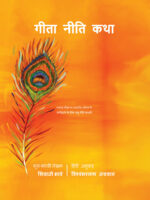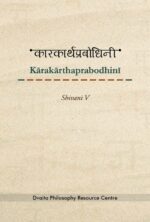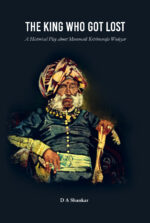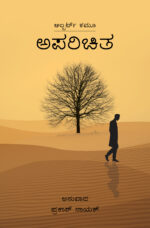Phedra
₹180.00
Translator: Madhava Chippalli
ರಾಸೀನ್ನ ಫೀದ್ರಾ ನಾಟಕವು ಪಾಶ್ಚಿಮಾತ್ಯ ನಾಟಕ ಸಾಹಿತ್ಯದಲ್ಲೇ ಒಂದು ಆಯಕಟ್ಟಿನ ಕೃತಿ. ಗ್ರೀಕ್ ಮತ್ತು ಎಲಿಜಬೆಥನ್ ನಾಟಕಗಳಲ್ಲಿ ಕಾಣಸಿಗದ ಹೊಸ ಬಗೆಯ ಮನೋಲೋಕವೊಂದನ್ನು ತನ್ನ ಪಾತ್ರಗಳಿಗೆ ಧಾರಣೆ ಮಾಡಿಸಿದ ಈ ನಾಟಕವು ಆ ಮೂಲಕವೇ ಈ ಪರಂಪರೆಯಲ್ಲಿ ಮನೋವಿಜ್ಞಾನಕ್ಕೆ ಒಂದು ಖಾಯಂ ಸ್ಥಾನವನ್ನು ಒದಗಿಸಿಕೊಟ್ಟಿತು. ಮುಂದೆ ಬಹುತೇಕ ಪಾಶ್ಚಿಮಾತ್ಯ ನಾಟಕಗಳು ಈ ಪರಂಪರೆಯನ್ನು ಮುಂದುವರಿಸಿದವು; ರಂಗಭೂಮಿಯಲ್ಲೂ ಮನೋಲೋಕವನ್ನು ಮುಂದಕ್ಕೆ ತರುವ ವಿಭಿನ್ನ ಪ್ರಯೋಗಗಳಿಗೆ ಈ ಪರಂಪರೆಯು ಚಾಲ್ತಿ ನೀಡಿತು. ಈ ಸಂಪ್ರದಾಯಕ್ಕೆ ವಿರೋಧಿಯಾದ ಫ್ರಾನ್ಸಿನ ಪ್ರಸಿದ್ಧ ರಂಗಕರ್ಮಿ ಆಂತೋನಿನ್ ಆರ್ತೋನ ಮಾತುಗಳನ್ನು ಕೇಳುವುದಾದರೆ, ಪಾಶ್ಚಿಮಾತ್ಯ ರಂಗಭೂಮಿಯಲ್ಲಿ ‘ಸೈಕಾಲಜಿಯ ದುರ್ಬೀಜ’ ಬಿತ್ತಿದ ಕೃತಿ ಇದು! ಹಾಗಿರುವುದರಿಂದ, ನಾವು ಈ ನಾಟಕವನ್ನು ಹೇಗೇ ಓದಲಿ, ಓದದೆ ಇದ್ದರೆ ಅಷ್ಟರ ಮಟ್ಟಿಗೆ ಪಾಶ್ಚಾತ್ಯ ನಾಟಕ ಸಂಪ್ರದಾಯದ ಅರಿವು ಅಪೂರ್ಣ. ಅಂಥ ಪ್ರಮುಖ ನಾಟಕವೊಂದು ಇನ್ನೂ ಕನ್ನಡಕ್ಕೆ ಬಾರದೆ ಉಳಿದಿತ್ತು; ಆ ಲೋಪವನ್ನು ಈ ಅನುವಾದವು ಸಮರ್ಥವಾಗಿಯೇ ತುಂಬಿಸಿದೆ. ಮೂಲದ ನಿಷ್ಠೆಯೊಂದಿಗೆ ಭಾಷಾಗಾಂಭೀರ್ಯ ಮತ್ತು ಮಾತಿನ ಸುಭಗತೆ ಎರಡನ್ನೂ ಒಟ್ಟಿಗೇ ಹಿಡಿಯಲು ಯತ್ನಿಸಿರುವ ಈ ಅನುವಾದವನ್ನು ನಾನು ತುಂಬು ಮನಸ್ಸಿನಿಂದ ಸ್ವಾಗತಿಸುತ್ತೇನೆ.
Interested readers may write to us at mup@manipal.edu about purchasing the book.
| Categories: | Kannada, Plays and Theatre, Texts in Translation |
|---|
| Format | |
|---|---|
| Author |
Related products
-
Geeta Niti Katha
₹850.00Author: Shivaji Bhave, Translator: Vishambharnath Agarwal
यह पुस्तक भगवद् गीता के प्रत्येक श्लोक पर आधारित लघुकथाओं का संकलन है। ये कथाएँ श्री शिवाजी भावे (आचार्य विनोबा भावे के छोटे भाई) ने 1950 के दशक में मराठी में लिखी। इन कथाओं की परम्परा पंचतंत्र और Aesop’s Fables से शुरू होती है।
कथाएँ बहुत ही रोचक और सरल हैं एवं गीता के गहन विषय को सुगमता से समझने में सहायक भी। जीवन के मूल्यों को बहुत ही सरल भाषा में समझाती है जिससे बच्चे बूढ़े और युवा सभी कुछ न कुछ ग्रहण कर सकते हैं।
Interested customers may write to us at mup@manipal.edu about purchasing the book.
-
Two Plays – The Sahyadri Saga and The World of Swayamvara
₹199.00Author: Akshara K V Translator: Jayanth Kodkani
These two plays negotiate with the real problems of contemporary India. If Sahyadri Kanda is about the ripples caused in the life of the people in a village on the Western Coast which will soon have a nuclear plant, Swayamvaraloka, is an allegorical narrative set in a small village that extends to include the larger contemporary world. Both the plays dwell on the seeming binaries of village-city, success-failure, modern-traditional while examining the nature of human relationships in the changing world. These plays also reflect an ambition to elevate the real experience to a mythical level. While most playwrights attempt to echo contemporary concerns by reinterpreting history and mythology, for these plays, the epics, their grandeur, the struggle, the wars are not episodes that happen in kingdoms and palaces and battlefields, they are also that which takes place in the microworld of one’s consciousness. Each character in these plays find their own dharma, yet it offers no model for the reader, and remains only a pointer to the complex process of finding it.
Interested readers may write to us at mup@manipal.edu about purchasing the book.
Also available on

eBook available on

-
Karakarthaprabodhini
₹345.00Author: Shivani V
Kaumudī (water lily) is the primer to study Sanskrit grammar, yet an ardent reader might find it a maze to untangle from its complexities. There is a need of Kaumudī (moonlight) to blossom it and show the light to reach its core. Kārakārthaprabodhinī is such an attempt. Kāraka, a factor that determines the relation between verb and the constituent words of a sentence, enables the reader to understand the intent of the sentence and thus critical discourses too. The Sanskrit grammatical texts and discourses have elaborated on the subtleties of Kāraka. Due to its profundity, there was a need for a lucid writing for the scholars and students for easy comprehension, which can be a reference book. Dr Potti made this possible for the Malayalam readers. Dr Shivani presents it for the Sanskrit fraternity too, with an introduction by Dr Varakhedi.
Interested customers may write to us at mup@manipal.edu about purchasing the book.
Also available on

-
Nanna Parni Shaale
₹290.00Author: Thakur S Powdyel Translator: N T Bhat
ನನ್ನ ಪರ್ಣ ಶಾಲೆ ಠಾಕೂರ್ ಎಸ್ ಪಡೆಯಲು ಅವರು ಇಂಗ್ಲಿಷಿನಲ್ಲಿ ರಚಿಸಿದ ಪುಸ್ತಕದ ಕನ್ನಡ ಅನುವಾದ, ಭೂತಾನ್ ರಾಜ್ಯದಲ್ಲಿ ರಾಷ್ಟ್ರವ್ಯಾಪಿಯಾಗಿ ಅಳವಡಿಸಲಾದ ಶಿಕ್ಷಣ ಯೋಜನೆಯನ್ನು ಪೌಡಿಯಲ್ “ಮೈ ಗ್ರೀನ್ ಸ್ಕೂಲ್” ಎಂಬ ಹೆಸರಿನಲ್ಲಿ ವಿವರಿಸಿದ್ದಾರೆ. ಮೂಲದ ಇಂಗ್ಲಿಷ್ ಶೀರ್ಷಿಕೆ ಹೊಂದಿಕೊಳ್ಳುವಂತ ಈ ಅನುವಾದಕ್ಕೆ ಪರ್ಣ ಶಾಲೆ ಎಂಬ ಶೀರ್ಷಿಕೆಯನ್ನು ನೀಡಲಾಗಿದೆ. ವಿದ್ಯಾರ್ಥಿ ವ್ಯಕ್ತಿತ್ವ ವನ್ನು ಸರ್ವಾಂಗೀಣ ವಾಗಿ ರೂಪಿಸುವ ಉದಾತ್ತ ಧೈರ್ಯವನ್ನು ಶಿಕ್ಷಣವು ಹೊಂದಿರಬೇಕೆಂಬುದನ್ನು ಈ ಪುಸ್ತಕದಲ್ಲಿ ಗಂಭೀರವಾಗಿ ಪ್ರತಿ ಪಾದಿಸುತ್ತಾರೆ. ಮನುಷ್ಯನು ಪ್ರಕೃತಿಯೊಂದಿಗೆ ತಾದಾತ್ಮ್ಯ ಭಾವವನ್ನು ಹೊಂದಿಕೊಳ್ಳುವುದು ಸರ್ವಾಂಗೀಣ ವ್ಯಕ್ತಿತ್ವದಲ್ಲಿ ಆಂತರ್ಗತವಾಗಿದೆ. ಶಿಕ್ಷಣಕ್ಕೆ, ಶಿಕ್ಷಣ ಸಂಸ್ಥೆಗಳಿಗೆ ಈ ಲಕ್ಷ್ಯವೂ ಇರಬೇಕೆಂಬುದು ಸ್ವತಸ್ಸಿದ್ದ. ಈ ನಿಟ್ಟಿನಲ್ಲಿ ಉದಾತ್ತ ಶಿಕ್ಷಣ ನೀಡುವ ಶಾಲೆಯನ್ನು ಗ್ರೀನ್ ಸ್ಕೂಲ್ ಎಂದು ಕರೆಯುವುದು ಸರ್ವಥಾ ಸ ರಿ. ಅಂತೆಯೇ ಈ ಶಿಕ್ಷಣ ನೀತಿಯನ್ನು ಭಾರತದಲ್ಲೂ ವ್ಯಾಪಕವಾಗಿ ಅಳವಡಿಸುವುದು ಅಪೇಕ್ಷಣೀಯ.
Also available on

eBook available on

-
The King Who Got Lost: A Historical Play about Mummadi Krishnaraja Wodeyar
₹200.00Young Mummadi, put on the throne by the British after the last Mysore war in 1799, was brought up under the watchful guidance of the far-sighted and shrewd Dowager Maharani Lakshmammanni. After falling into the hands of the powerful and politically experienced Dewan Purnaiah, he had a tortuous and tortured life. The young prince was never able to outgrow the influence of two of these mentors. To add to this, Mummadi, fell prey to an easy and rather voluptuous life. He was married but in addition to his many wedded consorts, he was caught in the spying and quarrelsome domestic life. Mummadi could never, despite valiant efforts, free himself and grow into a self-confident king.
The pressures of the ruthless British administration and the local, disruptive, and rebellious chieftains made Mummadi’s life a sad, tragic tale bordering on the ridiculous and the pathetic.
Interested overseas customers may write to us at mup@manipal.edu about purchasing the book.
-
Aparichita
₹170.00Translator: Prakash Nayakತರ್ಕವಾಗಲೀ ವಿಜ್ಞಾನವಾಗಲೀ ಮೂಲತಃ ಯಾವ ಅರ್ಥವನ್ನೂ ಅಡಗಿಸಿಕೊಂಡಿರದ ಈ ಅಸಂಬದ್ಧ ಬದುಕನ್ನು ವಿವರಿಸಲಾರವು. ಆದರೆ, ಅದಕ್ಕಾಗಿ ಅತೀಂದ್ರಿಯ ಶಕ್ತಿಯೊಂದನ್ನು ನಂಬುವುದು `ತಾತ್ವಿಕ ಆತ್ಮಹತ್ಯೆ’. ಇಂತಹ ತಾತ್ವಿಕ ಅಥವಾ ದೈಹಿಕ ಆತ್ಮಹತ್ಯೆಗಳು ಜಗತ್ತಿನ ಅರ್ಥರಾಹಿತ್ಯಕ್ಕೆ ಉತ್ತರಗಳಲ್ಲ. ಅಸಂಬದ್ಧತೆಯನ್ನು ಗುರುತಿಸಿ ಬದುಕುವುದೊಂದೇ ಅದಕ್ಕಿರಬಹುದಾದ ಉತ್ತರ ಎಂದು ವ್ಯಾಖ್ಯಾನಿಸಿದ ಫ್ರೆಂಚ್ ಲೇಖಕ, ತತ್ವಜ್ಞಾನಿ ಮತ್ತು ಪತ್ರಕರ್ತ ಆಲ್ಬರ್ಟ್ ಕಮೂ ಬರೆದಿರುವುದು ಕೆಲವೇ ಕಾದಂಬರಿಗಳು ಮತ್ತು ಕೆಲವು ವ್ಯಾಖ್ಯಾನಗಳು. ಇಪ್ಪತ್ತನೆಯ ಶತಮಾನದ ಅತ್ಯಂತ ಪ್ರಭಾವಶಾಲಿ ಲೇಖಕರಲ್ಲಿ ಒಬ್ಬನಾದ ಅಲ್ಬರ್ಟ್ ಕಮೂನ ಸುಪ್ರಸಿದ್ದ ಕಾದಂಬರಿ “ದ ಸ್ಟ್ರೇಂಜರ್” ಕನ್ನಡವೂ ಸೇರಿದಂತೆ ವಿಶ್ವದ ಹಲವು ಭಾಷೆಗಳಲ್ಲಿ ಅನುವಾದಗೊಂಡು ಹಲವು ಪೀಳಿಗೆಗಳ ಓದುಗರನ್ನು ವಿವಿಧ ರೀತಿಗಳಲ್ಲಿ ಆಕರ್ಷಿಸುತ್ತ ಬಂದಿದೆ. ೧೯೪೨ರಲ್ಲಿ ಮೊದಲು ಪ್ರಕಟವಾದ ಈ ಫ್ರೆಂಚ್ ಕಾದಂಬರಿ ಕಳೆದ ಎಂಟು ದಶಕಗಳಲ್ಲಿ ಪಡೆದುಕೊಂಡಿರುವ ವಿಮರ್ಶಾತ್ಮಕ ಪ್ರತಿಕ್ರಿಯೆ- ಪ್ರತಿಸ್ಪಂದನೆಗಳೂ ವೈವಿಧ್ಯಮಯವಾಗಿವೆ. ಪ್ರತಿವೊಂದು ಪೀಳಿಗೆಯೂ ಈ ಕೃತಿಯನ್ನು ಹೊಸದಾಗಿ ಓದುತ್ತ, ಅನುವಾದಿಸಿಕೊಳ್ಳುತ್ತ, ವಿಮರ್ಶಿಸುತ್ತ, ಇಂಥ ಅನುವಾದಗಳ, ವ್ಯಾಖಾನಗಳ ಒಂದು ಪರಂಪರೆಯೇ ಸೃಷ್ಟಿಯಾಗಿದೆ. ಕನ್ನಡದಲ್ಲಿ ಈ ಮೊದಲೇ, ೧೯೭ ೦ರಲ್ಲಿ, “ಅನ್ಯ” ಎಂಬ ಹೆಸರಿನಲ್ಲಿ ಡಾ. ಡಿ. ಎ. ಶಂಕರ್ ಅವರಿಂದ ಅನುವಾದಗೊಂಡಿದ್ದ ಈ ಕಾದಂಬರಿಯು ಅರ್ಧ ಶತಮಾನದ ನಂತರ ಮತ್ತೆ “ಅಪರಿಚಿತ” ಎಂಬ ಹೆಸರಿನಿಂದ ಶ್ರೀ ಪ್ರಕಾಶ್ ನಾಯಕ್ ಅವರಿಂದ ಹೊಸದಾಗಿ ಅನುವಾದಗೊಂಡು ಈ ಪರಂಪರೆಯನ್ನು ಮುಂದುವರಿಸಿದೆ. ಸ್ವತಃ ಓರ್ವ ಪ್ರತಿಭಾವಂತ ಕತೆಗಾರ-ಕಾದಂಬರಿಕಾರರಾಗಿರುವ ಪ್ರಕಾಶ್ ನಾಯಕ್ ಅವರ ಈ ಸರಳ ಸುಂದರ ಅನುವಾದವು ಕಮೂ ಕೃತಿಯ ಮರು ಓದು-ಹೊಸ ಓದುಗರನ್ನು ಆಹ್ವಾನಿಸುವಂತಿದೆ.Interested customers may write to us at mup@manipal.edu about purchasing the book.
Also available on

-
Kempu Kanagile and Chitra
₹160.00Author: Rabindranath Tagore, Translator: Sudha Adukkala
ಕೆಂಪು ಕಣಗಿಲೆ: ಅದೆಂಥ ಗಾಢಾಂಧಕಾರವೇ ಇರಲಿ, ಪುಟ್ಟ ಹಣತೆಯೊಂದು ಅದನ್ನು ತೊಡೆಯಬಲ್ಲುದೆಂಬುದು ಸಾರ್ವಕಾಲಿಕ ಸತ್ಯ. ಅಂಥದೊAದು ಸಂಘರ್ಷದ ಕಥನವನ್ನು ಗುರುದೇವ ರವೀಂದ್ರರು ತಮ್ಮ ಈ ನಾಟಕದಲ್ಲಿ ಹೇಳಿದ್ದಾರೆ. ‘ಕೆಂಪು ಕಣಗಿಲೆ’ ತೆರೆದಿಡುವ ಕೌರ್ಯದ ಜಗತ್ತು ಇಂದು ಈ ಕಾಲಘಟ್ಟದಲ್ಲಿ ನಿಂತು ಬರೆದರೇನೋ ಎಂಬಷ್ಟು ತಾಜಾ ಆಗಿದೆ. ಇಲ್ಲಿಯ ರಂಜನ ಕೇವಲ ಒಂದು ಪಾತ್ರವಲ್ಲ; ನಾವೆಲ್ಲರೂ ನಮ್ಮೊಳಗೆ ತುಂಬಿಸಿಕೊಳ್ಳಬೇಕಾದ ಜೀವನ ಪ್ರೀತಿಯ ವಿವಿಧ ಆಯಾಮಗಳ ಪ್ರತಿನಿಧಿ. ಇಲ್ಲಿಯ ನಂದಿನಿ ಇಂದು ಜಗವ ಸಂತೈಸಬೇಕಾದ ತಾಯಿಹೃದಯದ ಪ್ರತೀಕವಾಗಿದ್ದಾಳೆ.
ಚಿತ್ರಾ: ಪೌರಾಣಿಕ ಕಥಾನಕವೊಂದರ ಪುನರ್ಲೇಖನದ ಈ ನಾಟಕವು ಹೆಣ್ಣು ಮತ್ತು ರಾಷ್ಟçವನ್ನು ಒಂದು ಸಂಕಥನವನ್ನಾಗಿ ಚರ್ಚಿಸುತ್ತದೆ. ಹೆಣ್ಣು-ಗಂಡಿನ ಘನತೆಯ ಬದುಕನ್ನು ಕನಸುವ ನಿರೂಪಣೆ ನಾವು ಕಟ್ಟಬೇಕಾಗಿರುವ ರಾಷ್ಟçದ ರೂಪುರೇಷೆಗಳನ್ನೂ ತನ್ನೊಳಗೆ ಆಡಕ ಮಾಡಿಕೊಂಡಿದೆ. ನಮ್ಮ ಅನನ್ಯತೆಯನ್ನು ಉಳಿಸಿಕೊಳ್ಳುತ್ತಲೇ ಇನ್ನೊಬ್ಬರೊಂದಿಗೆ ಸಹಬಾಳ್ವೆಯನ್ನು ನಡೆಸುವ ಬಗೆಯನ್ನು ಮಂಡಿಸುತ್ತದೆ. ತಾನು ಆರೋಪಿಸಿಕೊಂಡ ಕೃತಕ ತೆರೆಯನ್ನು ಸರಿಸುವ ಚಿತ್ರಾ ನಮ್ಮೊಳಗಿನ ಅರಿವಿಗೆ ತೊಡಕಾಗಿರುವ ಸಂಕುಚಿತತೆಯ ಪರದೆಯನ್ನೂ ಸರಿಸುತ್ತಾಳೆ.
Interested overseas readers may write to us at mup@manipal.edu about purchasing the book. -
Mahāmmāyi
₹195.00Author: Chandrasekhara Kambara, Translator: Kathyayini Kunjibettu
Mahāmmāyi is the story of the legend of Shatavithaayi – the Goddess of death, and her adopted son Sambhashiva. Out of affection for her son, Goddess Shatavithaayi blesses him with the “power of life”. The blessing was that death will evade the people who are treated by Sambashiva. But a certain condition set by Shatavithaayi forbade him from healing every ill man. The condition was that, if Shatavithaayi stood on the right side of the patient, Sambhashiva could treat that person and he would live; but, if she stood on the left side of the patient, he should not treat that person as his death was inevitable. Through a distinct method of story-telling, the story follows the life of Sambhashiva as he begins to question the ideas of fate and destiny. Thus, the conflict between fate and human efforts to change that fate is vividly described in this play.









